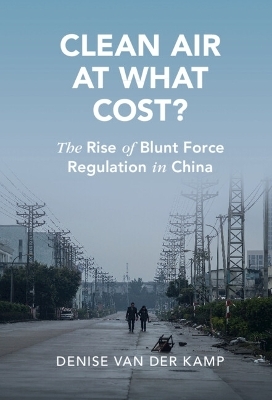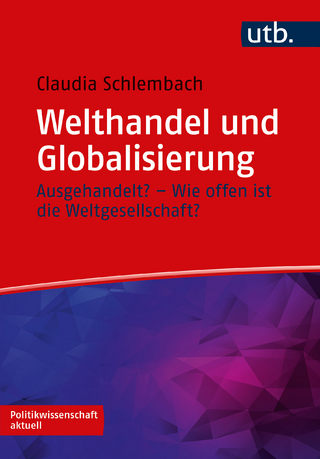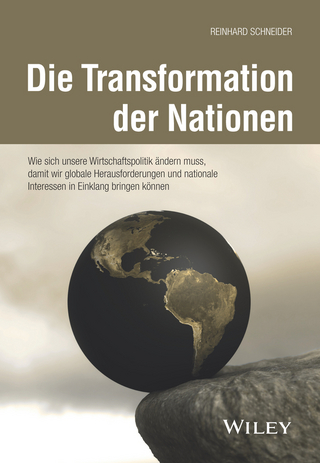
Clean Air at What Cost?
The Rise of Blunt Force Regulation in China
Seiten
2023
Cambridge University Press (Verlag)
978-1-009-15264-8 (ISBN)
Cambridge University Press (Verlag)
978-1-009-15264-8 (ISBN)
How can governments enforce urgent environmental policies that threaten key political and economic interests? This book highlights an unusual, top-down approach where the state forcibly destroys industries to reduce pollution. It examines why states use 'blunt force regulation' despite its severe social and economic consequences.
China's green transition is often perceived as a lesson in authoritarian efficiency. In just a few years, the state managed to improve air quality, contain dissent, and restructure local industry. Much of this was achieved through top-down, 'blunt force' solutions, such as forcibly shuttering or destroying polluting factories. This book argues that China's blunt force regulation is actually a sign of weak state capacity and ineffective bureaucratic control. Integrating case studies with quantitative evidence, it shows how widespread industry shutdowns are used, not to scare polluters into respecting pollution standards, but to scare bureaucrats into respecting central orders. These measures have improved air quality in almost all Chinese cities, but at immense social and economic cost. This book delves into the negotiations, trade-offs, and day-to-day battles of local pollution enforcement to explain why governments employ such costly measures, and what this reveals about a state's powers to govern society.
China's green transition is often perceived as a lesson in authoritarian efficiency. In just a few years, the state managed to improve air quality, contain dissent, and restructure local industry. Much of this was achieved through top-down, 'blunt force' solutions, such as forcibly shuttering or destroying polluting factories. This book argues that China's blunt force regulation is actually a sign of weak state capacity and ineffective bureaucratic control. Integrating case studies with quantitative evidence, it shows how widespread industry shutdowns are used, not to scare polluters into respecting pollution standards, but to scare bureaucrats into respecting central orders. These measures have improved air quality in almost all Chinese cities, but at immense social and economic cost. This book delves into the negotiations, trade-offs, and day-to-day battles of local pollution enforcement to explain why governments employ such costly measures, and what this reveals about a state's powers to govern society.
Denise van der Kamp is an Associate Professor in the Political Economy of China at Oxford University. Originally from Hong Kong, she received her Ph.D. from UC Berkeley, and has lived and worked in China, Tajikistan, Canada, the US, and the UK.
1. Introduction: clean air at what cost?; 2. Blunt force regulation; 3. Why blunt force regulation?; 4. Blunt force regulation and bureaucratic control; 5. The impact of blunt force regulation; 6. What are the alternatives?; 7. Managing the risks; 8. Comparative implications; 9. Conclusion; Appendix; Bibliography; Index.
| Erscheinungsdatum | 09.01.2023 |
|---|---|
| Reihe/Serie | Cambridge Studies in Law and Society |
| Zusatzinfo | Worked examples or Exercises |
| Verlagsort | Cambridge |
| Sprache | englisch |
| Maße | 159 x 235 mm |
| Gewicht | 530 g |
| Themenwelt | Recht / Steuern ► EU / Internationales Recht |
| Technik ► Umwelttechnik / Biotechnologie | |
| Wirtschaft ► Volkswirtschaftslehre ► Wirtschaftspolitik | |
| ISBN-10 | 1-009-15264-5 / 1009152645 |
| ISBN-13 | 978-1-009-15264-8 / 9781009152648 |
| Zustand | Neuware |
| Haben Sie eine Frage zum Produkt? |
Mehr entdecken
aus dem Bereich
aus dem Bereich
ausgehandelt? – wie offen ist die Weltgesellschaft?
Buch | Softcover (2024)
UTB (Verlag)
22,00 €
Theorie und Anwendung
Buch | Hardcover (2024)
Vahlen, Franz (Verlag)
39,80 €
wie sich unsere Wirtschaftspolitik ändern muss, damit wir globale …
Buch | Hardcover (2024)
Wiley-VCH (Verlag)
39,99 €


